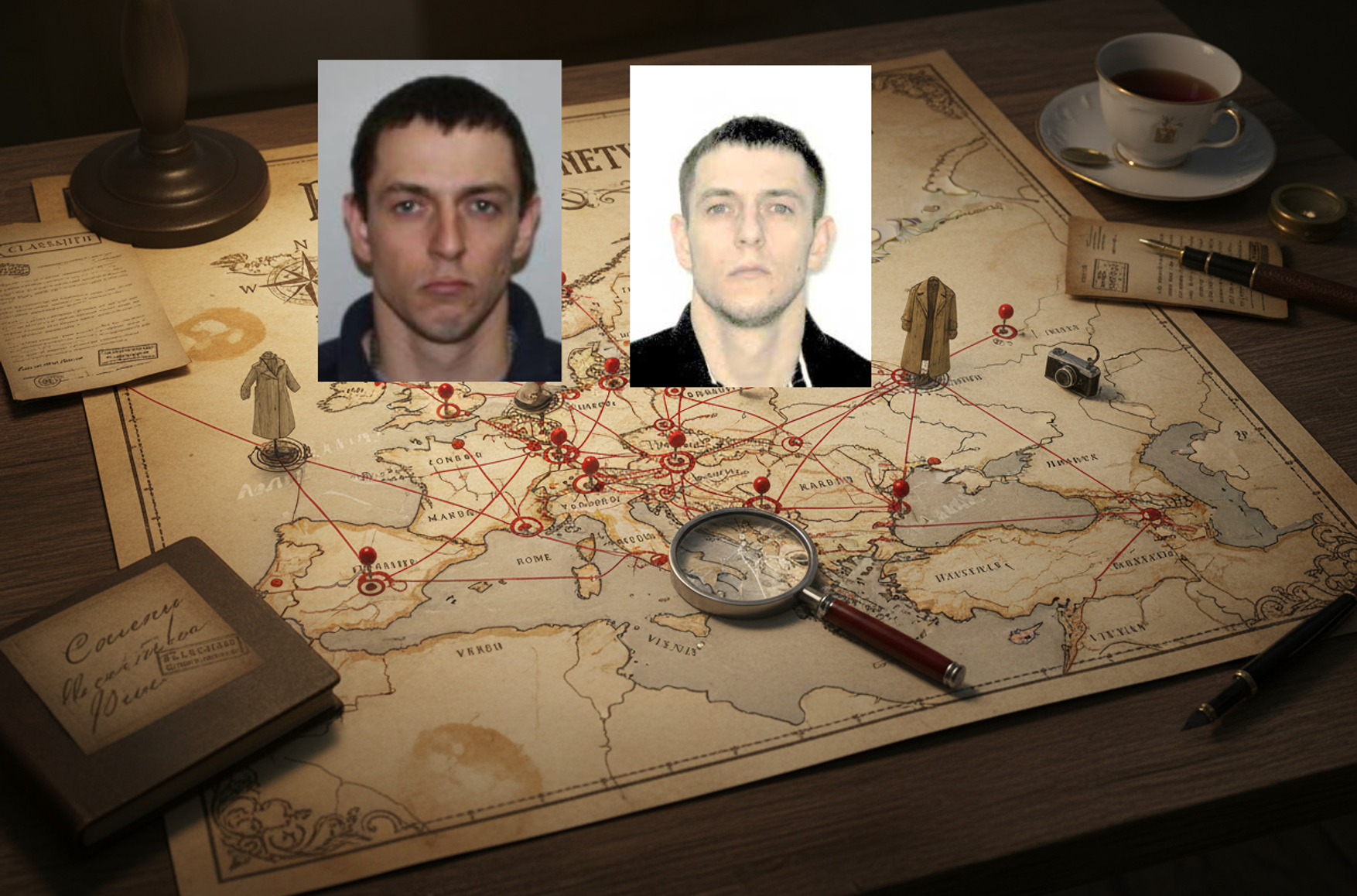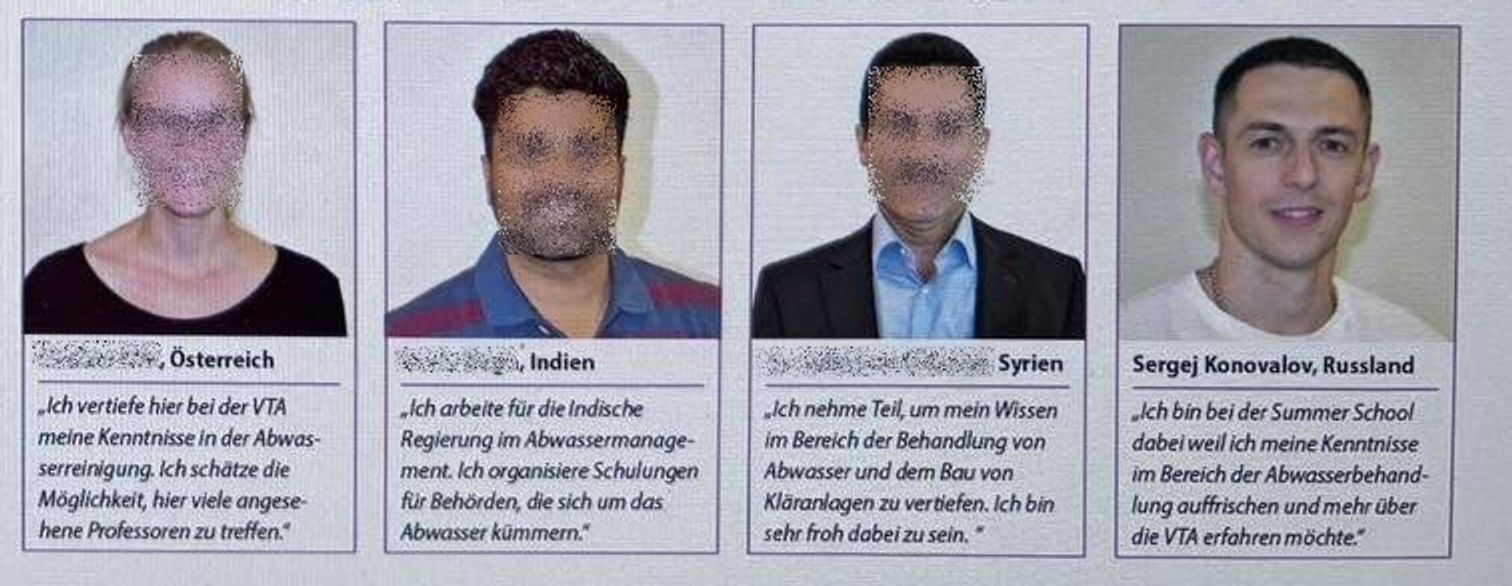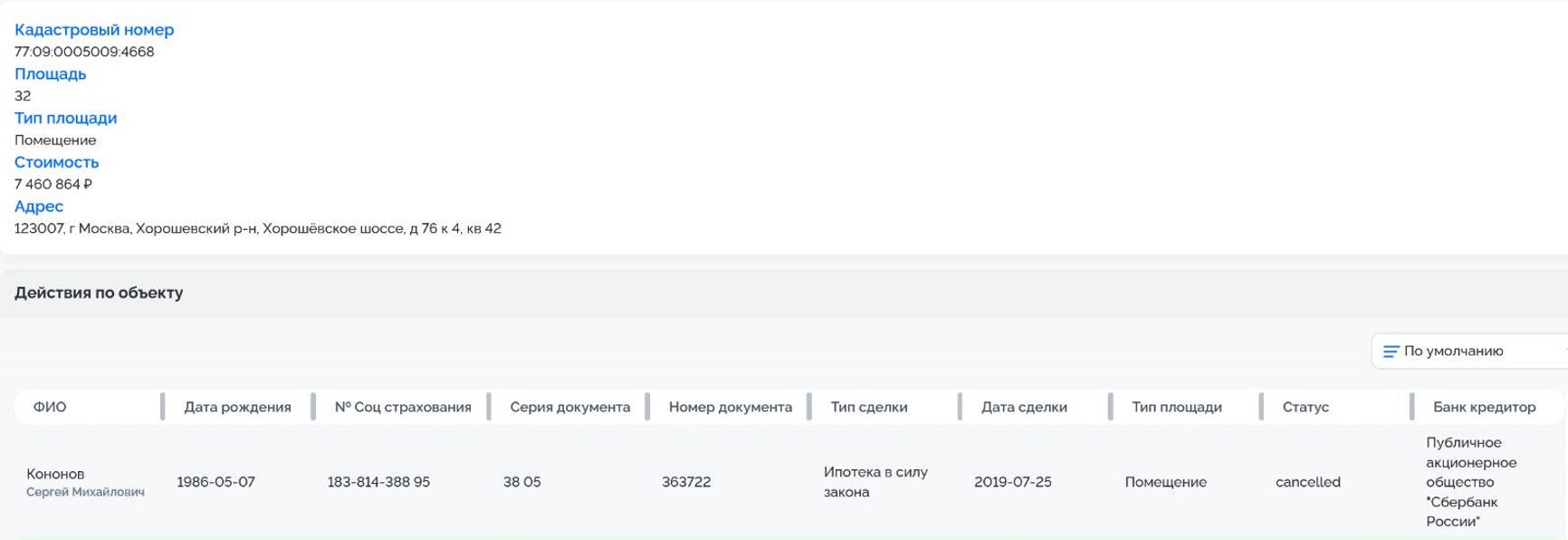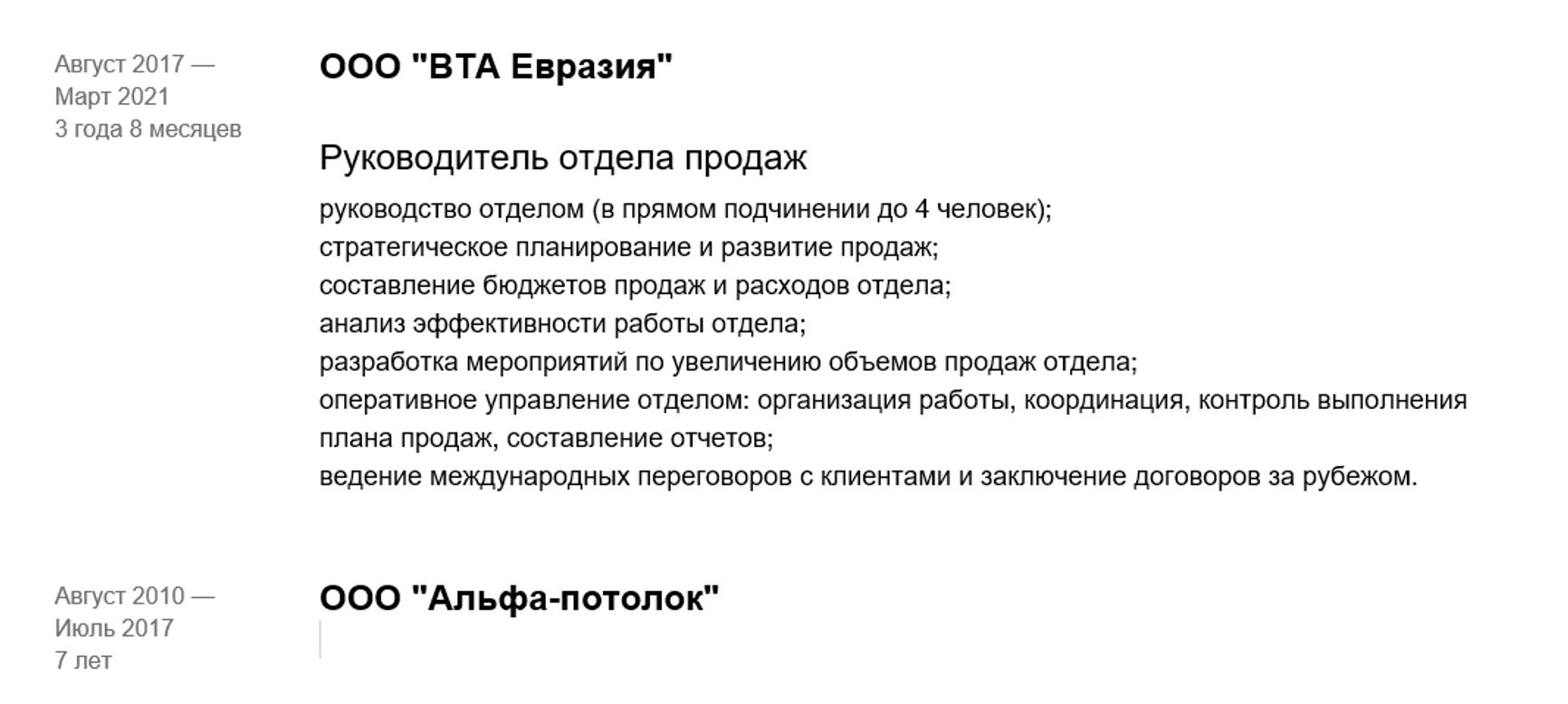

Since the start of Russia’s full-scale invasion of Ukraine, Russia’s military Intelligence, the GRU, has dramatically stepped up its activities across Europe — from assassinations and acts of sabotage to cyberattacks and “psychological operations.” Just a few years ago, the GRU depended heavily on operatives working in Europe under false identities. Today, because of the efforts of investigative journalists and Western security services, nearly all of them have been compromised or declared persona non grata. Nevertheless, many of these burned assets continue to play an active role in Moscow’s hybrid war against the West — only now, they do so from within the sanctuary of Russian territory. This is the curious story of one such operative.
Content
Recruitment and resume-building
VTA here, VTA there
“A dear friend from Austria”
Black ops and black belts
Premature evacuation
Life after exposure
On the sunny morning of July 1, 2018, thirty university students from around the world descended on Rottenbach, a postcard-perfect Austrian village surrounded by green hills and tidy farmhouses. They came from Taiwan, Uganda, Syria, and India to learn about wastewater treatment at the DEX Summer School, an annual program for young professionals in environmental engineering. That year’s host, VTA Austria, an industrial sewage treatment company, prided itself on pioneering chemical and biological purification technologies.
Among the attendees was a fresh-faced man from Russia, who told the company newsletter he wanted “to refresh my knowledge and learn more about VTA.” His name, he said, was Sergey Konovalov.

That wasn’t his name, nor was he a university student. Sergey Konovalov, 32, was a career officer of the GRU — the Russian military intelligence agency — and a member of its most infamous sabotage squad, Unit 29155. Just months earlier, operatives from that same unit had poisoned Sergei Skripal and his daughter Yulia in Salisbury, England, with the deadly Novichok nerve agent, killing an innocent bystander in the process. Yet here was one of their own, close enough to the poisoners to have their numbers saved in his phone, sipping coffee in the Austrian countryside and taking selfies with wastewater engineers. Konovalov’s main mission on this trip was arguably slightly less toxic: he was tending to his own “legend,” or spy cover story, which would allow him to travel the world without raising suspicion as to his true employer. VTA Austria seemed like a convenient corporate masquerade for him in Central Europe, since Konovalov officially worked for a Russian company - VTA Eurasia - positioning itself as a Russian distributor of VTA Austria.
The smiling student who traveled to Rottenbach in 2018 was born Sergey Kononov on May 7, 1986. In Russian bureaucratic databases, a few letters added to his surname were enough to generate a new identity. The difference was minor by design, a discrepancy easily brushed away as a typo or misrememberance by an old classmate or acquaintance who might accidentally bump into the GRU operative living under his assumed identity. “Sergey Konovalov,” as it happened, was a new breed of “illegal,” a Russian intelligence operative living abroad outside of diplomatic cover. Traditional illegals in the Soviet or post-Soviet periods burrowed into foreign societies unnoticed for years, even decades, using their fake names and imagined backstories. They almost always posed as non-Russians, speaking the language of whatever other country they claimed to come from fluently and without an accent, so as to maximize plausible deniability. (The hit FX series The Americans remains the popular standard-bearer of this genre of espionage.) However, in the post-Soviet era, a new potential tool had emerged: a large, inconspicuous Russian diaspora residing permanently outside the Russian Federation.
“Sergey Konovalov” was a new breed of “illegal,” a Russian intelligence operative living abroad outside of diplomatic cover
Both Russia’s foreign intelligence service, the SVR, and the GRU seized the opportunity and began experimenting with hybrid illegals. It was convenient, inexpensive, and did not require years of training operatives as citizens from third countries to such exacting standards of linguistic and cultural passability. Hybrid illegals don’t hide their Russian nationality; they live parallel lives under intricately invented counterfactual histories that allow them to move around without any discernible links to the Russian intelligence services. The flame-haired femme fatale Anna Chapman, arrested in the United States and swapped back for Skripal and others in 2010 as part of the FBI’s “Operation Ghost Stories,” was the SVR’s best-known hybrid illegal. In the summer of 2018, “Sergey Konovalov” was poised to be one of the most promising editions from the GRU. But then fate took a rather funny turn.
Recruitment and resume-building
The real Sergey Kononov was born in the last days of the Soviet Union in the town of Kursk, near the border with Ukraine. Both his parents were (and remain) military engineers working for the GRU’s secretive 18th Research Institute of the Defense Ministry, also known as Military Unit 11135. In the 1980s, the institute focused on signals intelligence, the creation of “special non-lethal weapons,” and the development of encryption systems for use by GRU operatives. More recently, the 18th Institute has been implicated in offensive cyber operations against the West. The unit’s activity was shrouded in such secrecy that rumours abounded that it engaged in research on captured UFOs, attaining a conspiracist stature in Russia not unlike “Area 51” in the United States.
In his late teenage years, Kononov was a competitive judo and sambo wrestler. After being conscripted into the Russian military, he followed in his parents’ footsteps by joining the GRU signals intelligence unit in Klimovsk, near Moscow, according to leaked address registrations examined by The Insider. At 20, he married Elena Kuracheva, also a Kursk native, and in 2011 they moved with their two-year-old son, Ivan, to an apartment just outside the GRU garrison. It was there that Sergey was spotted by GRU recruiters and selected to go through the elite training program for spies at the military intelligence headquarters in Moscow.
Sergey was spotted by GRU recruiters and selected to go through the elite training program for spies
Records show that by 2015, Sergey, Elena, and Ivan, now six, had moved to a tiny new Moscow living quarters — 323 square feet — in the GRU corporate “dormitory” located at 76 Khoroshevskoe Shosse. In March 2017, he took out a $93,000 mortgage from Sberbank, one of Russia’s largest state-owned financial institutions, and bought their modest dorm unit. Konovov had by now become a full member of Unit 29155. His career prospects looked rosy.

VTA here, VTA there
As part of his fledgling spy career, in 2015 Sergey was issued a new identity and a passport under the name “Sergey Konovalov.” He was also given a fresh past. His alter ego came with an alternative job history, as is visible from a passport application Konovalov made in 2019, which included a seven-year stint as a “manager” at Alfa Potolki, a drop-ceilings company based in Klimovsk, the same town where he’d served as GRU signal officer. (No such company exists in Klimovsk but the address given corresponds to an entity with the same name in the neighboring town of Podolsk.)
The same year Kononov became Konovalov, he became, on paper, the manager of a St. Petersburg-based company called Water Technical Alliance North West, abbreviated as VTA North West. VTA Eurasia and VTA North West were companies trading in chemicals while also offering nano-technology wastewater purification solutions. Both positioned themselves as exclusive Russian distributors of VTA Austria, the company that would host the students — Kononov among them — in July 2018. ( When asked by JETZT, The Insider’s Austrian investigative partner, VTA Austria’s management denied that it was in any way affiliated or knew of the Russian companies with similar names.)
No later than early 2017, Kononov finished his spy training.

That same year, he began traveling under his Konovalov identity. The first trip was to Tbilisi, Georgia, where the Russian VTA was opening a branch. His second trip, in November 2017, was to Vienna.
For the next three years, the newly minted Unit 29155 operative would visit Austria at least 13 times, using the links between his ostensible Russian employer and the Austrian VTA company as a pretext for most of his “working” visits.
“A dear friend from Austria”
It is not certain whether Kononov’s trips to Austria were strategically linked to the activities of VTA Austria, or if they were undertaken for some other purpose related to Unit 29155’s activities there. The company boasts a «presence» in 65 countries, including the sale of services and products to states of strategic interest to the GRU, such as Ukraine and Georgia. In a statement given to The Insider, VTA Austria claimed that “Sergey Konovalov” had no access to the company’s premises or confidential information, and that he was only familiar to them as a “student from Kazan University” who visited as part of the DEX Summer School event in 2018.
VTA Austria claimed that “Sergey Konovalov” had no access to the company’s premises or confidential information, and that he was only familiar to them as a “student from Kazan University”
However, Kononov’s digital footprint suggests that he engaged with the company even before that event — and continued to do so for years afterward, attempting to develop a friendship with at least one prominent expert of VTA Austria.
In May 2018, he posted on Instagram (where he kept an active presence under his assumed identity) a series of photos from the VTA Austria stand at an industrial expo in the country. In July, during the DEX Summer School, he posted what appears to be a photo from a lecture at the company’s headquarters, along with a caption “study, study, study.” The post was liked by one employee of VTA Austria, a leading chemical engineer and consultant to the company’s international clients. As there is no evidence that this employee knowingly engaged with a Russian intelligence officer, The Insider has agreed to identify him using a pseudonym, Markus B.
Over the next few months, Markus B. and Kononov continued to like and comment under each other’s posts. On July 26, 2018, three weeks after the summer school event at the VTA headquarters, the Russian replied to a message from Markus B. about Old Arbat Street, a Moscow landmark: “When you arrive [in Moscow], I will show you.” Just two months later, Markus B. indeed flew to the Russian capital, staying for a week. Markus B. and Kononov’s mostly-remote friendship continued for the next several years, with the two calling each other “my dear friend” on social media and wishing each other well on holidays. Markus B. told JETZT that Kononov was his “driver” during one of his trips to Moscow, and that he never suspected him of being a spy.
In July 2019, Kononov traveled to Austria for the next annual DEX summer school in Rottenbach. On the first of the month, he posted a photo of Markus B. receiving a professional award with the caption, “Great person,” alongside group photos from the seminar. Kononov went back to Austria in November that same year and posted a photo of an advertisement of the Kitsbuehel ski school, the go-to resort for Europe’s elite.
Kononov’s final known trip to Austria occurred in March 2020. However, he continued traveling internationally through 2021 — albeit never again to Europe — while also exchanging comments with Markus B. on Instagram.
Black ops and black belts
Markus B. was not the only acquaintance Kononov had in Austria. An active and proficient judo and sambo fighter (the martial art Russian President Vladimir Putin himself practices), he was close to Viktor Pavlov, the Russian-born founder of the Austrian Sambo Association and owner of the Vienna-based Ratiborets Sports Club, the only martial arts organization in Austria. Pavlov, a former Olympic reserve coach in jiu-jitsu, judo, and sambo, moved from Siberia to Vienna in 2012, though it is unclear if he knew Kononov from before that time.
During Kononov’s second trip to Austria, in 2018, he ended up participating, as “Sergey Konovalov,” in the country’s first sambo championship, which was organized by Pavlov. He won the gold. A few months later, he was back in Vienna and taking part in the city’s international Judo Open Competition, playing on behalf of Austria as part of the Ratiborets club. “Konovalov” claimed his second gold medal in the under-145-pound class competition.
A year later, the Russian spy flew to Marakkech to take part in the World Judo Championship, the highest-level competition for the sport short of the Summer Olympics. He again placed first in the veterans’ category.
Sergey Konovalov was now enshrined as a first-rate martial artist at a global level.
Premature evacuation
By the end of 2020, “Sergey Konovalov” had achieved unprecedented success in consolidating his cover identity as a professional wastewater expert and amateur martial artist, and he was fast building an international network of contacts. All of these would be invaluable assets for his future assignments, furnishing him with easy pretexts for international travel and a network of acquaintances and associates in strategic companies in the West. In this respect, Kononov was unique among other members of Unit 29155, who had aliases that were meant to be obscure to the point of untraceability. For an illegal, he was famous.
However, Kononov’s celebrity was compromised by events beyond his control. From 2017 to 2019, he traveled under GRU-issued, non-biometric passports from a batch that had sequential numbers. The Insider, Bellingcat, and other media partners began exposing these operatives following the Skripal assassination attempt and other abortive or accomplished acts of Russian state terrorism thanks to the fact that a passport number from this batch served as a telltale sign that the bearer belonged to the Kremlin’s premier black ops unit. The GRU, unsurprisingly, went into damage control mode. Rushing to prevent the loss of valuable assets, in May 2019 it issued “Sergey Konovalov,” along with other unblown operatives of Unit 29155, new biometric passports with random numbers outside of the publicized sequence.
Kononov was unique among other members of Unit 29155, who had aliases that were meant to be untraceable. For an illegal, he was famous
However, by all accounts this damage control came too late. Kononov continued traveling under this new passport for a year. Then, in December 2019, reality caught up with him. The French authorities entered the names of several members of the unit who had not been publicly unmasked into a Schengen travel black list. By 2020, two members of Unit 29155 were denied visas for European travel despite having seemingly clean biometric passports. The GRU must have realized that every spy who had previously traveled on a passport with the compromised sequence should be considered burned. Kononov was the last operative of Unit 29155 to travel to Europe, making the trip in March 2020. “Sergey Konovalov” was dead — or, at least, he should have been.
Life after exposure
When an illegal spy working overseas is burned and recalled, they usually resume their original identity in Russia and their cover alias is permanently retired. Often, they settle into a teaching job, training other future operatives. Another GRU illegal recalled at about the same time, also over her prior use of a sequential GRU passport – Olga Kolobova aka Maria Adela Kuhfeld – became an accountant once repatriated back to Moscow.
In Kononov’s case, however, there was a problem with early semi-retirement. A different, fictitious person having the same face had won several international judo championships, and his photograph was plastered on any number of easily Google-able websites. Sergey Konovalov could not simply be erased.
Moreover, Russian sports authorities had taken notice of the meteoric success of the gold medalist, whose career was presumably only getting started. In 2020, Konovalov had been invited to join the Olympic Reserve School of Martial Arts and the All-Russian Judo Federation, the official governing body for the sport in Russia, as a trainer and referee. Disappearing the subject of such prestigious invitations would only call more scrutiny to Konovalov’s fictitious biography, as well as to his current whereabouts and status.
Thus Sergey K’s GRU masters performed an act of intelligence jujitsu themselves: they eliminated Kononov’s actual identity and left him to inhabit his false one for the rest of his life.
Sergey K’s GRU masters eliminated Kononov’s actual identity and left him to inhabit his false one for the rest of his life
In 2021, all Russian government databases were purged of any reference to Sergey Kononov. His passport and driver’s license files disappeared, and the only proof of their prior existence was archived (even if previously leaked databases still contained the evidence).
From martial arts to hybrid warfare
With his birth record scrubbed from Russia’s official registries, the GRU made several attempts to test the viability of continuing an illegal’s seemingly compromised identity. Unit 29155 told Konovalov to resume his international career as both a sewage treatment expert and a martial arts master. Russian corporate databases show that in March 2021, Konovalov incorporated a Russian entity called “Element.” In a resume he drafted in 2022, he characterized his duties as Element’s CEO as “developing and maintaining a strategic partnership with an Austrian company.” It isn’t clear which Austrian company he was referring to, but the 2022 resume indicates that he was seeking a position as HR director who was “willing to take business trips but not ready for relocation.” Konovalov claimed in the c.v. that he’d had experience working with foreign partners in Austria, Germany, Georgia, Morocco, Slovenia, and France. The HR candidate was, he noted, a “Master of Sports of International Class in judo.”
Kononov/Konovalov’s job search, no doubt in service of the GRU, was short-lived. By February 2023, he was listed as a “project manager” of the Pushkin Institute, a government agency teaching Russian to foreign students. The organization boasts a contractual academic network in 89 countries around the world, and a policy document obtained by The Insider lists his role at the Institute as “collecting a pool of opinion leaders and loyal media” in Armenia, Kyrgyzstan, Tajikistan, and Belarus, as well as the “creation of information media” in those “four friendly countries.”
A policy document listing Konovalov as a “project manager” of the Pushkin Institute, a government agency teaching Russian to foreign students
One of Konovalov's roles at the Institute is described as “collecting a pool of opinion leaders and loyal media” in Armenia, Kyrgyzstan, Tajikistan, and Belarus, as well as the “creation of information media” in those “four friendly countries.”
This public-facing role in fact obfuscates Kononov’s real focus at the Pushkin Institute, according to a source within the GRU contacted by the Insider. In a series of reports to his GRU commanders, Kononov proposed the creation of a “[h]ybrid warfare counter-attack center,” the activities of which were to include monitoring and analysis of risks and vulnerabilities of Russian academia to “foreign soft power influence” and the “prevention of threats in cooperation with the respective security services.” The proposal also foresaw the creation of “Hybrid Warfare” as an academic course in various Russian universities, a concept GRU Unit 29155 has pioneered in its fifteen years of sabotage, assassination, cyber operations, and proxy warfare.
Another policy document on which Kononov worked is rife with anti-Semitic conspiracy theories and racist tropes that shed light on the thinking of a great many Russian intelligence operatives. Unsurprisingly, this document, dated September 2022, is all about Ukraine and how the GRU perceives the enemy in a war that still shows no sign of ending. “Structure of Ukraine’s Ideological War Against Russia” invokes an alleged secret 1950 plot by the United States to “destroy the USSR as a civilization,” which has been updated to account for Putin’s faltering war of conquest. It reads:
“Ten days after the start of the Russian Federation’s special operation for the demilitarization and denazification of Ukraine — on 2 March 2022 — the Rothschild family sent a special message to the British government, in which it stated firmly and categorically:
‘The world order will not survive without Ukraine. We must bring Russia to its knees by any means, to send a clear and unequivocal signal to our enemies.’
‘Ukraine is a necessary asset we cannot afford to lose on the 'geopolitical chessboard.' In essence, our current course of avoiding military action means that our global project is dead.’
‘I demand that you direct more force against Russia and its satellites, ramp up the 'information war' to shape public opinion, and send weapons to our friends in Ukraine.’”
The specific member of the Rothschild family using the first person singular in this alleged communique is not given. The document proceeds to list government organizations, NGOs, and media institutions that, in the opinion of the GRU, are part of the Western hybrid warfare juggernaut that Russia must “stop in its tracks.” Its constituent parts include but are not limited to: the BBC, The Guardian, The Daily Mail, and Bellingcat.
No one outside the GRU knows exactly what role Kononov is now tasked with. But his phone metadata and sources place his workplace inside the GRU’s glass fortress at 76 Khoroshevskoye Shosse, working hand in hand with other operatives specializing in informational and psychological warfare.
The spy who once had a fake job cleaning Europe’s industrial wastewater of pollutants is now condemned to live under a fake persona, spending the rest of his career polluting Europe’s media space with fake news. There could hardly be a more befitting metaphor for Russia’s hybrid war — an industry where fakes always replace the originals and truth is strictly optional.